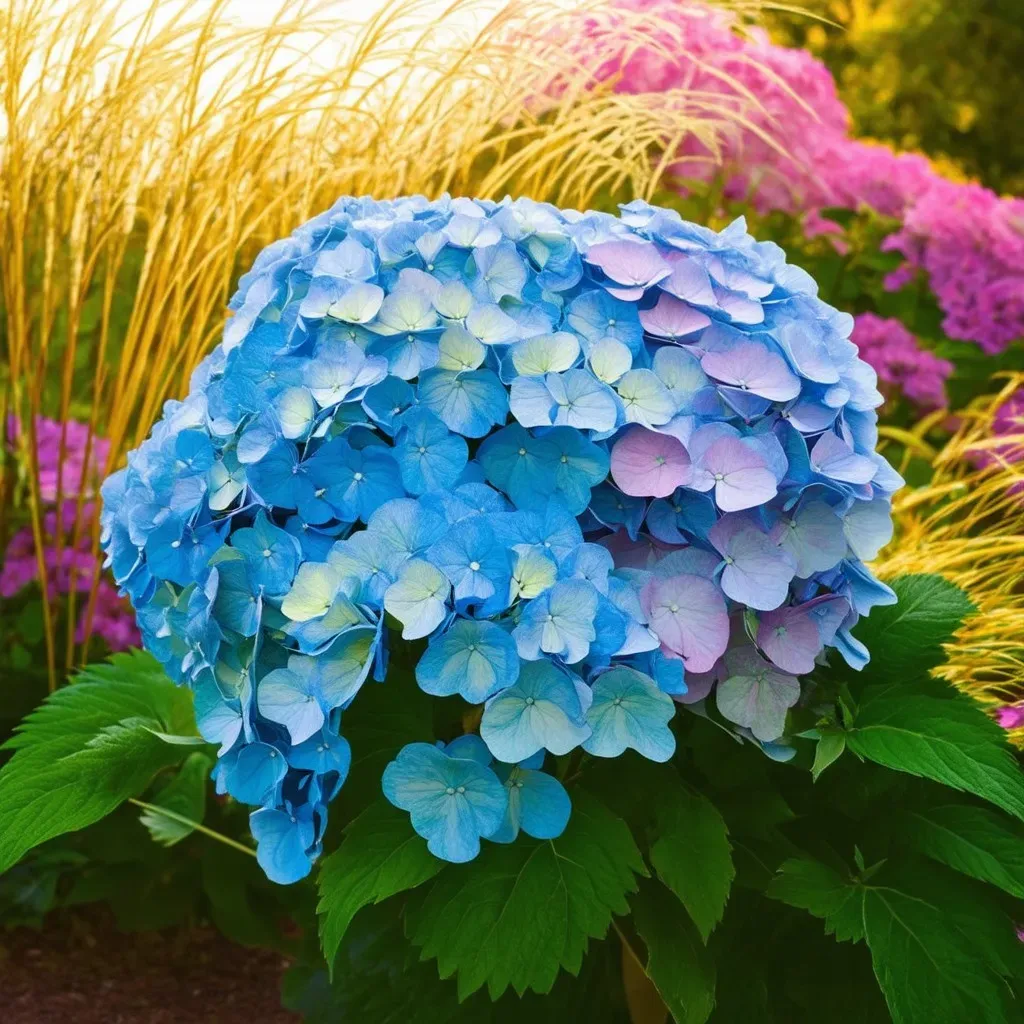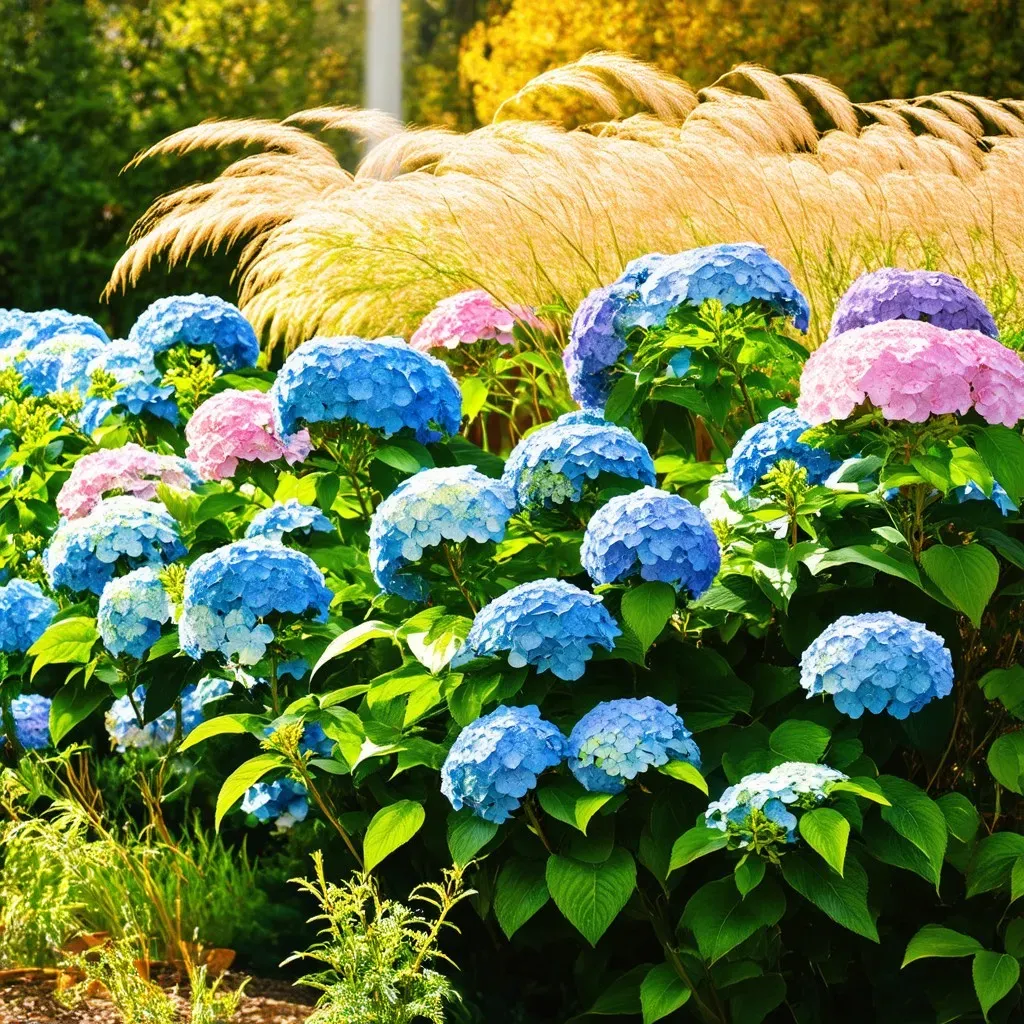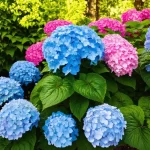When discussing the beauty and elegance of garden design, hydrangea and ornamental grass come to the forefront as two magnificent choices to create stunning landscapes. These two plant types, when thoughtfully combined, offer a harmonious blend of texture, color, and structure, making them ideal companions in any garden setting.
Why Choose Hydrangeas?
Hydrangeas are among the most popular flowering shrubs, celebrated for their lush blooms and vibrant colors. They come in various species – including hydrangea macrophylla, Hydrangea paniculata, and Hydrangea quercifolia – each offering unique features and bloom styles.
hydrangea facts and Growing Conditions
| Fact | Description |
|---|---|
| Common Species | Macrophylla, Paniculata, Quercifolia |
| Bloom Colors | Pink, Blue, White, Purple |
| Sunlight Needs | Partial to Full Sun |
| Soil | Well-drained, rich in organic material |
| Watering | Moderate, ensuring soil doesn’t dry completely |
Hydrangeas bloom during the summer months and, depending on their type, their flowers can change color based on soil pH levels. This adaptability adds an element of intrigue for gardeners wishing to experiment with their blooms.
The Allure of Ornamental Grasses
Ornamental grasses, such as Miscanthus, Panicums, and Pennisetum, provide versatility in garden design. Their graceful forms and movement in the wind create a dynamic landscape, complementing the static beauty of hydrangeas.
Characteristics of Ornamental Grasses
| Variety | Best Features |
|---|---|
| Blue Fescue | Compact tufts with silvery-blue foliage |
| Pampas Grass | Tall plumes that add height to gardens |
| Maiden Grass | Soft, feathery texture that sways gently |
Ornamental grasses are typically low-maintenance and drought-resistant, making them a practical choice for both novice and experienced gardeners. They thrive in sunny locations and can withstand a variety of soil conditions, as long as drainage is adequate.
Creating Companionship: The Perfect Pairing
When paired together, hydrangeas and ornamental grasses create a stunning visual juxtaposition. The soft, billowing forms of the grasses accentuate the bold, structured blooms of hydrangeas. Here’s how to create a harmonious garden space:
- Layering Heights: Position taller grasses, like Miscanthus, behind shorter hydrangeas to provide a backdrop without overshadowing them.
- Color Coordination: Match the color of ornamental grass to the hydrangea blooms. For example, blue fescue works beautifully with blue hydrangeas, creating a unified color scheme.
- Seasonal Interest: Ornamental grasses provide winter interest with their dried foliage, maintaining visual appeal after the hydrangeas have finished blooming.
Visual Example of Plant Pairing

Incorporating ornamental grasses can also enhance the overall sensory experience in the garden, offering gentle sounds and movement that differ from the vivid colors of hydrangea blooms.
FAQ: Common Questions About Hydrangeas and Ornamental Grasses
Q1: Can I plant hydrangeas and ornamental grasses together?
A1: Absolutely! They complement each Other beautifully and can enhance your garden’s aesthetic.
Q2: What types of ornamental grasses work best with hydrangeas?
A2: Low-growing grasses like blue fescue or taller types like miscanthus can pair well with various hydrangeas.
Q3: How much sunlight do hydrangeas and ornamental grasses need?
A3: Both types thrive in full sun to partial shade, making them adaptable for different garden conditions.
Companion Plant Suggestions
To further enrich your garden’s appearance, consider adding other Companion Plants. Here’s a list to inspire you:
| Companion Plant | Features |
|---|---|
| Hosta | Lush foliage, thrives in shade |
| Coral Bells | Colorful, bell-shaped flowers |
| Roses | Classic blooms that add romance |
| Ferns | Soft textures for contrasting foliage |
Incorporating a variety of plants with different heights, textures, and colors can truly elevate your landscape design.
Maintenance: Caring for Hydrangeas and Ornamental Grasses
While both hydrangeas and ornamental grasses are relatively low-maintenance, providing the right care is crucial for ensuring thriving plants.
Care Schedule
| Task | Frequency |
|---|---|
| Watering | Weekly during dry spells |
| Fertilizing | Early spring, slow-release type |
| Pruning | Post-bloom for hydrangeas |
| Cutting Grasses | Early spring before new growth |
Regularly inspect both plants for any signs of disease or pests. Early intervention can mitigate damage and protect the flourishing landscape.
Conclusion
Combining the elegance of hydrangeas with the structure and character of ornamental grasses creates a breathtaking garden landscape. By understanding the needs of each plant and implementing thoughtful design strategies, you can cultivate an outdoor space that delights the senses throughout every season.
For further reading on the best companion plants for hydrangeas, check out The Garden Style.



